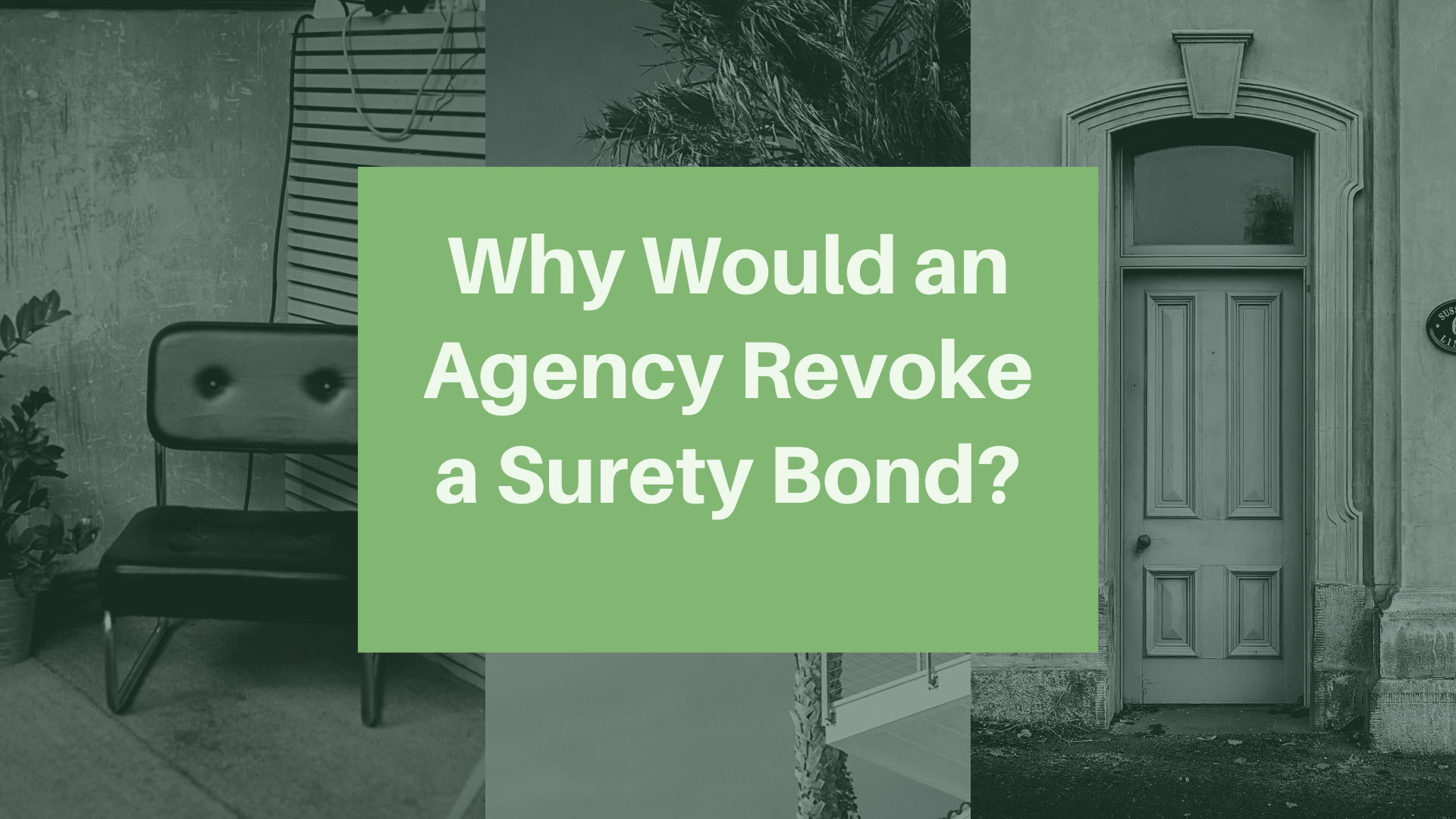Why do agencies revoke surety bonds?
Agencies often revoke surety bonds when the contractor or insurer no longer meets their requirements. While policies vary between states, most state licensing boards have similar requirements for what they want to be covered by a contractor’s bond.
Because it is not always possible to know with absolute certainty whether a violation has occurred until it has actually happened, many state licensing boards require additional insurance in the form of surety bonds which will pay for fines and fees resulting from violations committed by the licensee.
The agency might issue a waiver allowing for reduced coverage during good faith negotiations; however, revocation is likely once negotiations fail. State regulatory boards may also consider revoking a license if an insurer fails to make payments to its policyholders.
Why am I ineligible for a surety bond?
You might not be eligible if:
- You cannot pass a background check and/or credit check;
- You have no experience;
- Your business is new;
- You do not meet the financial requirements (e.g., assets, net worth); or
- The agency believes you cannot successfully carry out your proposed project.
You might also need to provide additional information such as licenses and permits, work samples, tax returns, and bank statements before you can qualify for a contract of this type. In some cases, your ability to obtain insurance depends on how well you manage your contracting business. Even if you were successfully bonded before, you may no longer meet the agency’s requirements if your financial and management situation changes.
What happens if I do not comply with a surety bond agreement?
If you fail to comply with specific terms of the contract, the agency can file a claim against your bond. The insurer then has 20 days to resolve the issue or face revocation of its license to do business in the state.
If the insurer fails to pay within that time period, it must immediately inform all parties who are involved in that specific contract that any further payments on that project will be declined until the matter is settled. If this occurs, you may need to find another way of completing your job unless you can prove that no violation occurred.
How does a surety bond work?
When you apply for a surety bond, the insurance company will check your credit and criminal background. In some cases, they may also investigate your business management practices to determine whether you are capable of managing a successful contracting business.
After reviewing your application, the insurer will let you know whether or not they will write a policy for you. If they decline coverage, you can ask if one of their competitors is willing to offer a similar type of bond. Otherwise, you will need to find another bonding agency that does offer this type of contract.
Agencies often revoke surety bonds when the contractor or insurer no longer meets their requirements. However, state regulatory boards may also consider revoking a license if an insurer fails to make payments to its policyholders. For those who are ineligible for a surety bond, agencies may waive certain requirements during good faith negotiations; however, revocation is likely once the agency and contractor fail to reach an agreement.
Because it can take time to successfully negotiate with state licensing boards or agencies, you should conduct extensive research before applying for a surety bond.
What does it mean if your bond is revoked?
Prior to revocation, an agency will typically issue a waiver allowing for reduced coverage or lower premiums. However, once negotiations break down and the bond is revoked, you may need to find another type of insurance if you want to continue working with that agency.
In some cases, your ability to obtain insurance depends on how well you manage your contracting business. Even if you were successfully bonded before, you may no longer meet the agency’s requirements if your financial and management situation changes.
What will I do if the agency revoked the surety bond?
If the surety bond is revoked, you may need to find another type of insurance if you want to continue working with that agency. In some cases, your ability to obtain insurance depends on how well you manage your contracting business. Even if you were successfully bonded before, you may no longer meet the agency’s requirements if your financial and management situation changes.
What happens when a surety bond is not able to be revoked?
In most cases, agencies will revoke surety bonds after they fail to reach an agreement through negotiations. However, in some instances state regulatory boards or agencies can consider revoking a license from an insurer that fails to make payments either directly or indirectly to contractors it insured. When this happens, you should immediately find another insurer to avoid any delays in payment.
What is the difference between revoking a bond and waiving coverage?
Agencies will typically issue waivers when they feel that the contractor or insurer no longer meets their requirements; however, revocation of coverage is likely once negotiations break down. While waivers can offer some options for reduced coverage, an agency may revoke its license if it fails to make payments to contractors.
This means you may need to find another type of insurance if you want to continue working with that agency. For those who cannot get surety bonds through other agencies, state licensing boards often consider the following factors before making a final decision:
- The likelihood that similar violations will occur in the future
- Your management skills and ability to run a successful contracting business
- The time required for you to establish solid management skills
- Your financial status and ability to pay claims in the future
